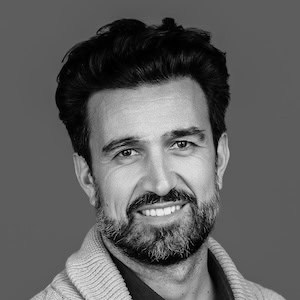-
The Path to 100 Gigawatts: How India Has Emerged as a Global Leader in Solar Energy
India has displaced Japan as the third-largest market for solar power and is poised to bump the U.S. from the No. 2 spot, as it works toward boosting its renewable capacity to 100 gigawatts by the end of 2022. Though it still relies on coal plants and has dangerous air pollution levels, the landscape is changing fast, with 14 new solar parks planned – including one that's set to become the world’s largest. Sahaj Desai outlines the momentum and challenges behind India's renewable energy revolution.
- Categories
- Energy
-
Up to 2.5 Billion People Need Glasses: Can This Hardware Innovation Deliver?
Roughly 25 percent of the global population needs glasses, but lacks access. The problem isn't cost: Affordable glasses are readily available in emerging markets. What's lacking are trained eye care specialists. The social startup PlenOptika is tackling that issue with a device called the QuickSee: a binocular-sized autorefractor that non-specialists can use to scan a patient’s eyes and produce an eyeglass prescription within seconds. Paul Scott, director of engineering for ASME, discusses the innovation, and the challenges and rewards of running a social hardware startup.
- Categories
- Health Care, Social Enterprise, Technology
- Tags
- partnerships
-
Inspiration, Ideation and Implementation: How Design Thinking Can Build Robust and Sustainable mHealth Ventures
Design thinking can help mHealth ventures develop their value propositions and potential impacts, meet customer needs, and shape business models that stand the test of time. In the final post in his series on making mHealth businesses sustainable, Khanjan Mehta provides a structured framework that helps these enterprises determine their viability, particularly in the early conceptualization phase.
- Categories
- Health Care, Technology
-
The Funder Problem: Good Intentions Aren’t Enough
Despite their good intentions, funders are often the biggest barriers to social enterprises or nonprofits achieving impact. Open Road Alliance, a philanthropic initiative that gives emergency grants to impact-focused organizations, gathered and analyzed five years of data about roadblocks faced by over 100 grantees. Nearly half of the problems the group found were caused by funders. Laurie Michaels describes the three categories of funder-related barriers that account for the most frequent challenges – and offers some surprisingly easy fixes.
- Categories
- Social Enterprise
-
Is Financial Inclusion Stalling? The 2017 Findex Results Raise Several Red Flags
The Global Financial Inclusion Database (Findex) - one of the most authoritative yardsticks on the state of financial inclusion - finds that 69 percent of the world’s adults now have bank or mobile money accounts. But while that's an exciting headline, it's also misleading, as millions of those newly opened accounts are lying dormant. And that's just one reason why industry stakeholders have found the latest Findex data underwhelming. Elisabeth Rhyne and Sonja Kelly at the Center for Financial Inclusion at Accion unpack some of the troubling stats – and highlight a few bright spots.
- Categories
- Finance
-
Internalizing Innovation: It’s About Creating a Culture, Not a Product
Innovation holds the key to expanding financial health for low- and moderate-income households—but how can organizations foster a culture of innovation, rather than treating it as a one-off event or a process fix? MetLife Foundation and UNCDF are launching two new innovation hubs in China and Malaysia that aim to promote this cultural shift. Krishna Thacker and Jaspreet Singh discuss the program's unique approach.
-
Nine Ways to Make Money in mHealth: The Top Value Propositions from a Study of 234 Projects in Emerging Markets
Telemedicine and mHealth initiatives often struggle in emerging markets - yet researchers seldom focus on how these ventures can better develop sustainable business models. An ambitious study of 234 mHealth projects in developing countries attempts to rectify this problem. Khanjan Mehta at Lehigh University runs down the research, highlighting the nine most common value propositions it found.
- Categories
- Health Care, Technology
-
Cutting Edge Agriculture: How Artificial Intelligence, Satellites and Big Data are Transforming Farmers’ Access to Finance
There are many reasons for the $450 billion global agricultural finance gap. But much of the challenge stems from lenders' inability to monitor farmers' output, estimate their income and assess their risk of default, says Ruchit G Garg of Harvesting Inc. He explores how artificial intelligence and satellites are addressing that data imbalance, helping lenders reach many of the world’s 500 million smallholder farmers for the first time.
- Categories
- Agriculture, Technology, Telecommunications










